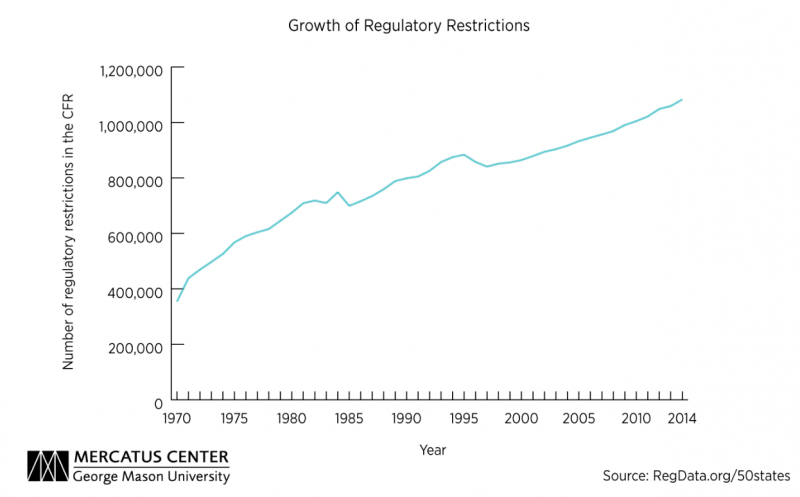
Recently a new study came out from the Mercatus Center at George Mason University, focussing on the effect of occupational licensing on the chiropractic, physical therapist (PT), and physician labor market specifically.
The study, authored by Edward J. Timmons, Jason M. Hockenberry and Christine Piette Durrance, finds that: “Allowing chiropractors and PTs more freedom of practice may result in lower healthcare costs.” And that “Consumer welfare is likely to be improved by having greater access to lower-priced care and more choices for pain treatment.”
This is a recurring theme in markets nowadays with ever-increasing regulations ever Right now there are more than 1,000,000 restrictions in the Code of Federal Regulations (CFR) which has more than 175,000 pages.

The government has a fondness for occupational licensing which can be seen in the numbers. The amount of people working in jobs that require occupational licensing has increased from 4% in 1950 to 29% in 2006. Under the guise of “safety” politicians have created artificial barriers of entry to a multitude of industries. A famous example is the absurdity of the cosmetology license that is required for hair braiding.
In general, occupational licensing increases the barrier to entry in a certain industry and thus artificially increases wages of the licensed workers. In regard to the hair braiders it made a perfectly safe job illegal to perform without very expensive training completely unrelated to the job.
Right now a big reason why people tend to go to the higher cost primary-care physician is due to ‘scope-of-practice laws’. These laws state what a, in this case, chiropractor or PT can and can’t treat. Broadening these scope-of-practice laws for chiropractors and PT’s gives customers lower-cost alternatives for back and neck pain. This could improve the efficiency of the healthcare market and lead to lower spending on Medicaid.
This study confirms, with data, what we already suspected. Occupational licensing, just like overregulation, reduces efficiency in the marketplace, causing higher costs for everyone.

